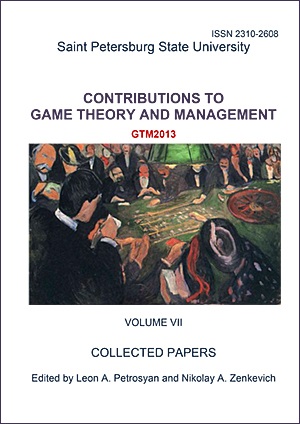Bridging the Gap between the Nash and Kalai-Smorodinsky Bargaining Solutions
Abstract
Bargaining solutions that satisfy weak Pareto optimality, symmetry, and independence of equivalent utility representations are called standard. The Nash (1950) solution is the unique independent standard solution and the Kalai-Smorodinsky (1975) solution is the unique monotonic standard solution. Every standard solution satisfies midpoint domination on triangles, or MDT for short. I introduce a formal axiom that captures the idea of a solution being “at least as independent as the Kalai-Smorodinsky solution.” On the class of solutions that satisfy MDT and independence of non-individually-rational alternatives, this requirement implies that each player receives at least the minimum of the payoffs he would have received under the Nash and Kalai-Smorodinsky solutions. I refer to the latter property as Kalai-Smorodinsky-Nash robustness. I derive new axiomatizations of both solutions on its basis. Additional results concerning this robustness property, as well as alternative definitions of “at least as independent as the Kalai-Smorodinsky solution” are also studied.
Keywords:
Bargaining, Kalai-Smorodinsky solution, Nash solution
Downloads
References
Downloads
Published
How to Cite
Issue
Section
License
Articles of "Contributions to Game Theory and Management" are open access distributed under the terms of the License Agreement with Saint Petersburg State University, which permits to the authors unrestricted distribution and self-archiving free of charge.




